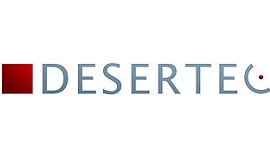The $400 billion Desertec Industrial Initiative (DII) which proposes using the Sahara sun to generate enough energy that could, as some analysts say, power Europe, is pushing hard to supply Europe with 15% of its energy needs by 2015.
The consortium, mostly led by German companies, has some big names onboard such as German reinsurer Munich Re, Siemens, E.ON, and RWE. Each company involved in the Desertec Industrial Initiative contributes €150,000 to Desertec annually, which allowed for the opening of its office and the appointment of a CEO who is in charge of trying to obtain other financiers for the major project.
Some are skeptical about the Desertec scheme as the project will span from Morocco to Egypt and up the eastern Mediterranean to Turkey. Critics warn that there are many snares in the initiative such as the political instability of the
The planned CSP technology uses mirrors to concentrate sunlight and create steam to drive turbines that generate electricity. The problem is that this technology requires water – a scarcity in the
Yet Desertec still continues to make strides to reach fruition – although the plan has been in the pipeline for over 30 years. Regulation still lags in the North African region, but the consortium is attempting to win above-market prices for the potential energy transported from the Sahara desert CSP scheme, and will begin its push for feed-in tariffs (FITs) tackling Morocco first. Desertec’s CEO, Paul van Son, a former Dutch utility executive, said Morocco had agreed to host Desertec’s first pilot project, a 500-MW to 1,000-MW facility that would combine solar thermal, photovoltaic, and wind-power generation.
And while European governments are praising the idea as it will decrease dependency on Russia and the Persian Gulf, others feel that the project is not beneficial to North Africa. Managing Director of Phaesun Tobias Zwirner told Alternative Energy Africa, “I feel it is a European project that will produce energy for Europe.”
Get the LATEST issue of Alternative Energy Africa featuring biofuels in the aviation industry, the

